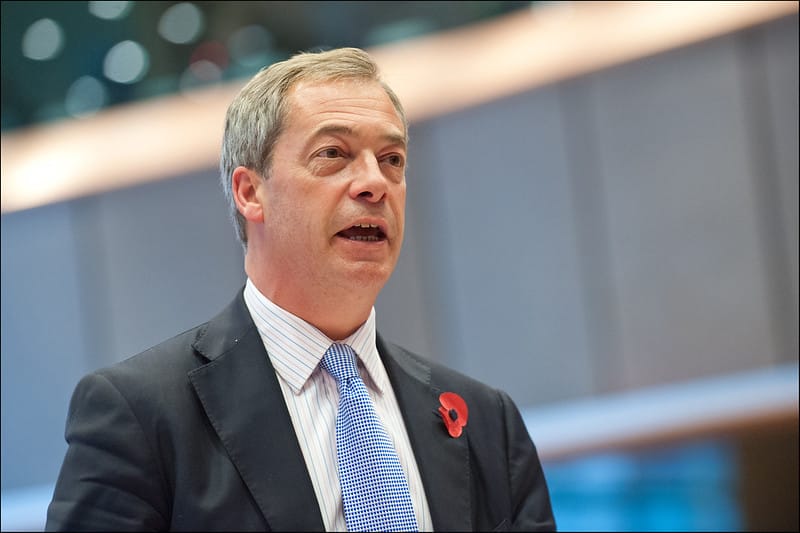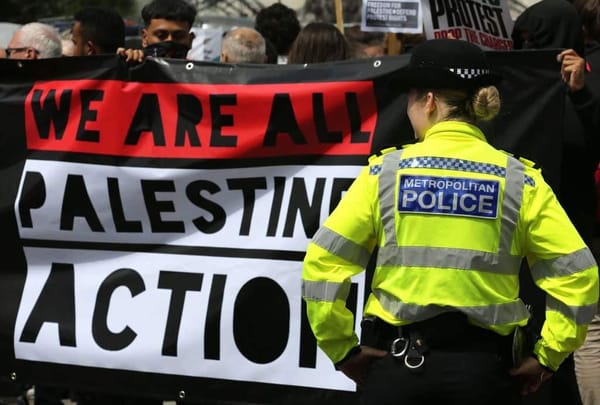Don't be fooled, Brexit is a Jewish issue
Brexit is a Conservative attempt to overturn the internationalist legacy Jews have so heavily relied on. Why then does our communal leadership seem unbothered by it?

It’s been uncanny. For the past few years, Jews and Brexit been permanently in the headlines—but never the two have met.
In fact, the Jewish establishment seems determined not to care about Brexit. This odd state of affairs first took hold in 2016, when the Board of Deputies announced that it would take no position on the EU referendum, which was not, it decided, a Jewish issue. More recently, the Board’s president Marie Van Der Zyl prevaricated on the issue, saying that there was ‘not a clear-cut Jewish case on either side of the argument’.
The furthest the Board has gone on Brexit was a minimal document, published in March last year, entitled ‘Brexit and the Jewish Community’ whose main focus was on Israel, including protecting trade relations with the country and ring-fencing rules that restrict BDS for public bodies. Questions of trade with Europe, workers’ rights, environmental protections and immigration are, apparently, of no interest to British Jews.
Brexit has fared little better in the Jewish press. Despite polling British Jews on antisemitism on what seems like a weekly basis, the Jewish Chronicle has rarely measured Jews’ attitudes to Brexit. Nor has it devoted many column inches to the impact of Brexit on our community.
This is strange, given that the evidence suggests that the vast majority of British Jews hold strong views on (and against) Brexit. Areas with large Jewish populations were some of the most Remain-voting in the country: 79% in Hackney North and Stoke Newington; 76.6% in Hampstead and Kilburn; 69.1% in Finchley and Golders Green; 62.7% in Leeds North East. I know a disproportionate number of Jews who have campaigned actively for a second referendum.
On the one hand, Jews’ antipathy to Brexit follows a national trend: our community is well-represented amongst the metropolitan professional class that statistically support Remain. However, there may also be uniquely communal reasons why Jews tend towards Europhilia.
The first and most obvious is freedom of movement. European Jews fleeing the Holocaust were victims not only of Nazism but of closed borders, including Britain’s own. By 1945, Britain had accepted around 90,000 Jewish refugees but turned away half a million more. Since then, the British Jewish community has rebuilt itself on the free movement facilitated by the EU, being joined by thousands of French, Dutch and German Jews as well as Israelis, South Africans and Australians eligible for EU citizenship (if Brexit goes ahead, of course, we may lose many of them). Isolationism feels instinctively wrong to a diasporic community comprised so heavily of immigrants.
Then there are the legal protections the EU affords. As a minority, Jews cannot protect ourselves by force and have thus historically sought legal guarantees as the best method of self-defence. As the Austro-Hungarian and Ottoman Empires were collapsing, Jewish politicians and activists lobbied for constitutional reform that would permit minority groups, including Jews, to set up their own educational and even legal systems. Jews supported the establishment of supranational institutions such as the League of Nations and later the United Nations since they sought to check the power of nation-states, and by extension, their ability to discriminate against minorities.
The European Union is a continuation of this tradition, limiting the scope of majoritarianism in member states through human rights laws and worker protections, measures usually least popular with the most nationalist governments. The EU also helps minorities form intracontinental alliances, in Jews’ case the European Jewish Congress and Paideia, the European Institute for Jewish Studies—both initiatives that have helped rebuild the European Jewish identity after the Holocaust, and resist the American/Israeli myth that European Jewry is essentially a graveyard.
Brexit is a Conservative attempt to overturn the internationalist legacy that Jews have so heavily relied on. Why then does our communal leadership seem unbothered by it?
The reason, I think, has to do with assimilation. Jewish establishment groups have become so at home within the conservative mainstream that they believe a rise in far-right nationalism won’t affect our community (there are, after all, Jewish Brexit Party candidates). In a narrow sense, their analysis is correct: the Brexiteer right is primarily Islamophobic. In fact, if you look at posts from Facebook groups such as Leave.EU, you’ll realise many far-right nationalists view themselves as philosemites, standing arm-in-arm with “white” Jews against the “brown” Muslim barbarians at the gates.
The Jewish establishment’s disinterest in Brexit is, in other words, predicated on the idea that Jews are a unique minority. An improbable hypothesis follows: the politicians who have the best records on anti-racism are the most antisemitic, those steeped in other racisms the least so. Oceania has always been at war with Eurasia. Taking on the left must be the only priority of the Jewish community—we must, therefore, ally ourselves with the right, however hard a Brexit they seek, however nationalist their ideology.
This narrative has gone unchallenged for too long. We on the Jewish left must tell a different story: that the wellbeing of Jews in Britain is bound up with that of all other minorities; that we, in the long term, will suffer in Little Britain. If Boris Johnson fulfils his promise to implement Canada-style trade deals, things will be particularly bad: the economy will contract, poverty will proliferate, and minorities will be blamed (it is delusional to think that Jews will be exempt from this ire). Jews’ safety is bound up with Brexit—we must vote accordingly. ▼
Joseph Finlay is the former Deputy Editor of the Jewish Quarterly and a PhD student at Southampton University, researching British Jewish history. He works widely in Jewish music, and is Musical Director of Mosaic Liberal Synagogue and the London Jewish Male Choir.





